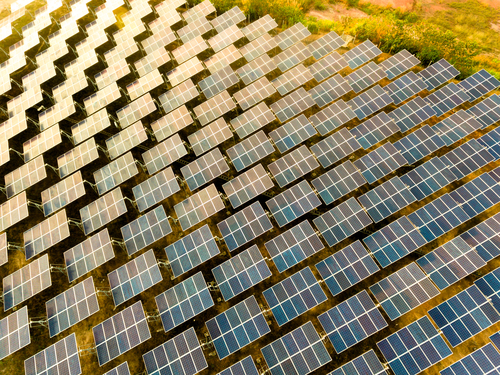Fuelling a new energy era
Under Saudi Arabia’s presidency, the G20 has addressed the impact of the pandemic on energy markets and power the global recovery, with new measures that seek to ensure security, restore stability and further energy access
As the premier forum for the world’s leading economies, the G20 has been at the forefront of responding to global crises since the 2008 global financial crisis. The Kingdom of Saudi Arabia has played a critical leadership role as president of this year’s G20 in responding immediately to COVID-19, together with all G20 members, and in laying the groundwork for an inclusive, sustainable and resilient global recovery. G20 energy ministers have been at the heart of this response and recovery effort, with a comprehensive agenda to ensure security and market stability, along with sustainability and access for all to the critical energy supplies that form the backbone of our economies as well as the medical systems and essential services critical to combat the pandemic.
In my capacity as minister of energy of the Kingdom, it has been a privilege to work collectively with my counterparts during this critical time. In April 2020, we convened an extraordinary virtual ministerial meeting to respond to the impact of the pandemic and related instability in energy markets. The ministers committed to “ensure that the energy sector continues to make a full, effective contribution to overcoming COVID-19 and powering the subsequent global recovery”. We also established the voluntary short-term Energy Focus Group to monitor response measures. It has discussed a range of measures, including adjusting energy production, monitoring consumption and supply reserves, and ensuring data transparency. Its work also highlighted the importance of sustained capital investments to support short- and long-term global energy security and stability. The energy Focus Group developed 12 measures to rebalance energy markets and submitted its recommendations to G20 energy ministers. Our collective hard work has been successful in ensuring security, restoring stability and furthering energy access throughout the pandemic.
In parallel to our extraordinary crisis response efforts, the G20’s Energy Sustainability Working Group and Climate Stewardship Working Group have advanced an ambitious agenda to promote sustainable development, inclusive economic growth, human health and well-being, and the protection of the environment and our climate.
Realising new opportunities
Even before the COVID-19 pandemic, our G20 presidency was being organised under the theme of “Realising Opportunities of the 21st Century For All”. This overarching agenda is based on three pillars: empowering people, by creating conditions in which all people can live, work and thrive; safeguarding the planet, by fostering collective efforts to protect our commons; and shaping new frontiers, by adopting long-term and bold strategies to utilise and share the benefits of innovation. The twin issues of energy and climate are central to both this overarching vision and each of these pillars.
In fulfilling this comprehensive agenda, the Kingdom of Saudi Arabia, together with leading partners from academia, the private sector and international organisations, succeeded in developing a new, cross-cutting and comprehensive approach in the Circular Carbon Economy Platform. A flagship of the Saudi G20 presidency, it has been endorsed by G20 energy ministers, crowning a year of intensive action-oriented programmes that included inputs by G20 governments, workshops and in-depth engagements. This CCE Platform offers a voluntary approach that can advance stable and secure energy markets and energy access while holistically managing emissions to mitigate the challenge of climate impacts and advance cleaner and more sustainable energy systems.
The fourth R
Built upon the existing circular economy approach, the CCE Platform analyses energy, material and emission flows within both socio-economic and natural systems. It expands upon the circular economy’s focus on ‘reduce, reuse, recycle’ by adding ‘remove’ as a fourth R. Together, the 4Rs comprise a voluntary, holistic, integrated, inclusive, complementary and pragmatic approach that values all options to managing emissions in all sectors and advances universal energy access through an all-fuels and all-technologies approach, while also helping advance the development, deployment and scaling of innovative technologies, policies, practices and partnerships.
In addition to recognising the CCE, our energy ministerial meeting on 27–28 September endorsed the G20 Initiative on Clean Cooking and Energy Access to accelerate progress on energy poverty eradication, recognising that access to energy underpins inclusive economic growth and sustainable development. We also endorsed the G20 Energy Security and Markets Stability Cooperation to further advance these critical objectives during the recovery from the pandemic and beyond.
As we reflect on 2020, we recognise it has been filled with both unique challenges and opportunities. Our work has been enabled, and our success ultimately ensured, by the tireless work of all involved, including that of my fellow ministers who demonstrated courage and leadership, the Kingdom’s outstanding national network of energy and climate organisations, and the many leading organisations that played a critical part in our work. They include the Clean Energy Ministerial, Global CCS Institute, International Energy Agency, International Energy Forum, International Renewable Energy Agency, King Abdullah Petroleum Studies and Research Center, Mission Innovation, the Nuclear Energy Agency, the Organisation for Economic Co-operation and Development, the Organization of Petroleum Exporting Countries, and Sustainable Energy for All. Under the most difficult of circumstances, we have together advanced key outcomes and delivered progress that will be taken forward by future presidencies, just as the Kingdom of Saudi Arabia has built on the legacy of previous presidencies. I look forward to working with my counterparts to continue to advance shared priorities under the presidency of Italy in 2021, India in 2022, and beyond.












